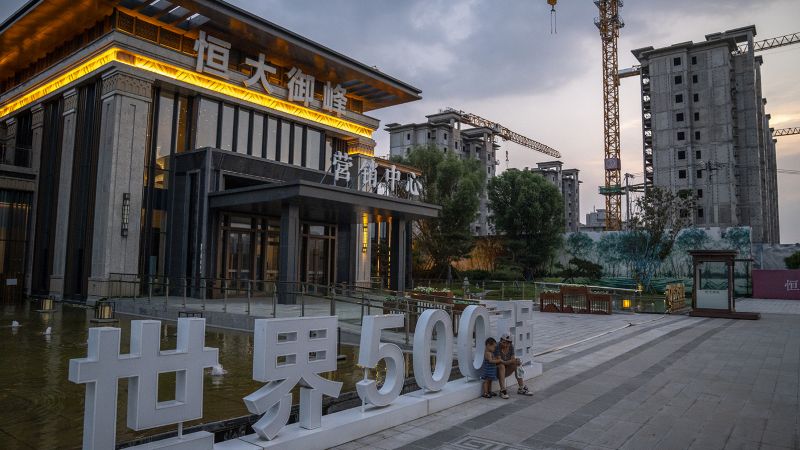Evergrande Group, the world’s most indebted property developer, has posted long-delayed financial results as a key part of its debt restructuring, which is shaping up to be one of the largest in Chinese corporate history.
The company reported losses attributable to shareholders of 476 billion yuan ($66 billion) and 106 billion yuan ($15 billion) for 2021 and 2022, respectively, according to a Monday stock exchange filing. Combined net losses for the two years amounted to 582 billion yuan ($81 billion).
This is the first time the group has released results since 2021, when its collapse sparked China’s worst ever property crisis, which continues to weigh on the economy.
Shares in Evergrande have been suspended from trading since March 2022 because of its delay in releasing 2021 results.
To avoid being delisted, Evergrande had to report the results no later than September 20, in addition to meeting other requirements specified by the stock exchange.
The filing also revealed that Evergrande’s total debts had reached 2.437 trillion yuan ($340 billion) by the end of last year.
That’s roughly 2% of China’s gross domestic product.
Evergrande’s total assets, meanwhile, were valued at only 1.838 trillion yuan ($256 billion), which means it could be insolvent.
The company’s employee headcount fell by 17% to 102,910 by the end of last year from two years ago。
The conditions indicate “the existence of material uncertainties” that may cast significant doubt about the company’s ability to continue as a going concern, it said.
Evergrande has been undergoing a major debt restructuring since late 2021, which was ordered by the government.
In March, the company unveiled a multi-billion dollar restructuring plan to make peace with its international creditors. But it said it needed additional financing of $36 billion to $44 billion to resume work and deliver property projects.
Founded by Xu Jiayin in 1996, Evergrande was China’s second largest property developer by sales in 2020.
Before crisis hit two years ago, it had more than 200,000 employees, raked in more than $110 billion in annual revenues and owned more than 1,300 developments in hundreds of cities.
In September 2021, the company’s cash crunch worsened amid a government crackdown on excessive borrowing in the real estate industry.
Policymakers wanted to curb debt risks in the economy and rein in soaring property prices.
But Evergrande’s cash problem soon evolved into a crisis that caused credit downgrades and debt defaults, sending shockwaves through the economy and global markets.
As the company teetered on the brink of meltdown, the government stepped in and ordered a debt restructuring intended to prevent a disorderly collapse from wreaking havoc on the economy and sparking social unrest.
Evergrande’s financial health has been a concern for global investors, as the company owes tens of billions of US dollar-denominated debt.
Its debt restructuring could also set an important precedent for global investors dealing with similar cases involving Chinese developers.
For years, real estate was a pillar of growth for China’s economy. The sector and related industries account for as much as 30% of China’s GDP, employ tens of millions of workers and contribute to a significant portion of revenue for local governments.
Read the full article here




